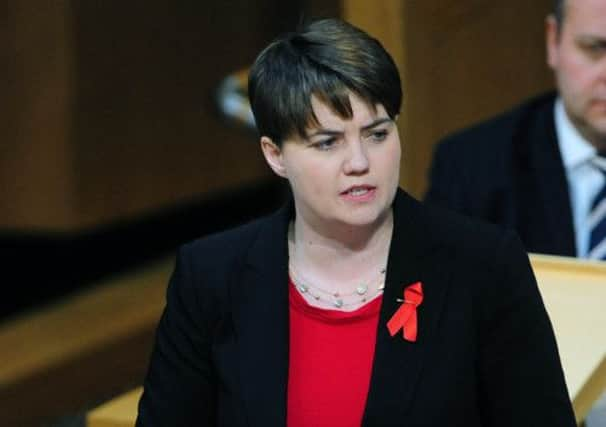Scottish independence: SNP’s ‘£32bn black hole’


Ms Davidson will claim that the SNP has not said where the money will come from to fund pledges such as renationalising Royal Mail, undercutting UK corporation tax by three per cent, employing more border staff, introducing a fuel regulator and bringing the retirement age down a year in an independent Scotland.
She will also outline changes she wants to see in Scottish education, but in a week where the referendum is being put at the heart of the Conservative conference she will focus her attack on the SNP.
Advertisement
Hide AdAdvertisement
Hide AdMs Davidson, who is also set to introduce Prime Minister David Cameron on Wednesday, will say today: “The SNP are a party driven by a single goal; divorcing Scotland from the family of the United Kingdom.
“A party that will do anything, say anything, offer any sweetener – just to lure a few more voters onside in their bid to break up Britain.”
On the post independence spending commitments she will say: “So what does it all add up to? £32bn of spending pledges without any hint of where the money would come from to pay for it all.”
SNP MSP Linda Fabiani claimed that it was the Tories who have broken their promises to Scotland.
She said: “Ruth Davidson has a cheek to accuse others of not keeping promises when the truth is it is her party that has broken promise after promise to Scotland.”
Yesterday, energy minister Michael Fallon warned that Scotland will lose hundreds of millions of pounds in subsidies for renewable energy if voters back independence next year.
In his conference speech Mr Fallon, who was born in Perth, pointed out that 40 per cent of all renewable subsidies come north of the Border, although Scotland only has 10 per cent of the population.
ELSEWHERE